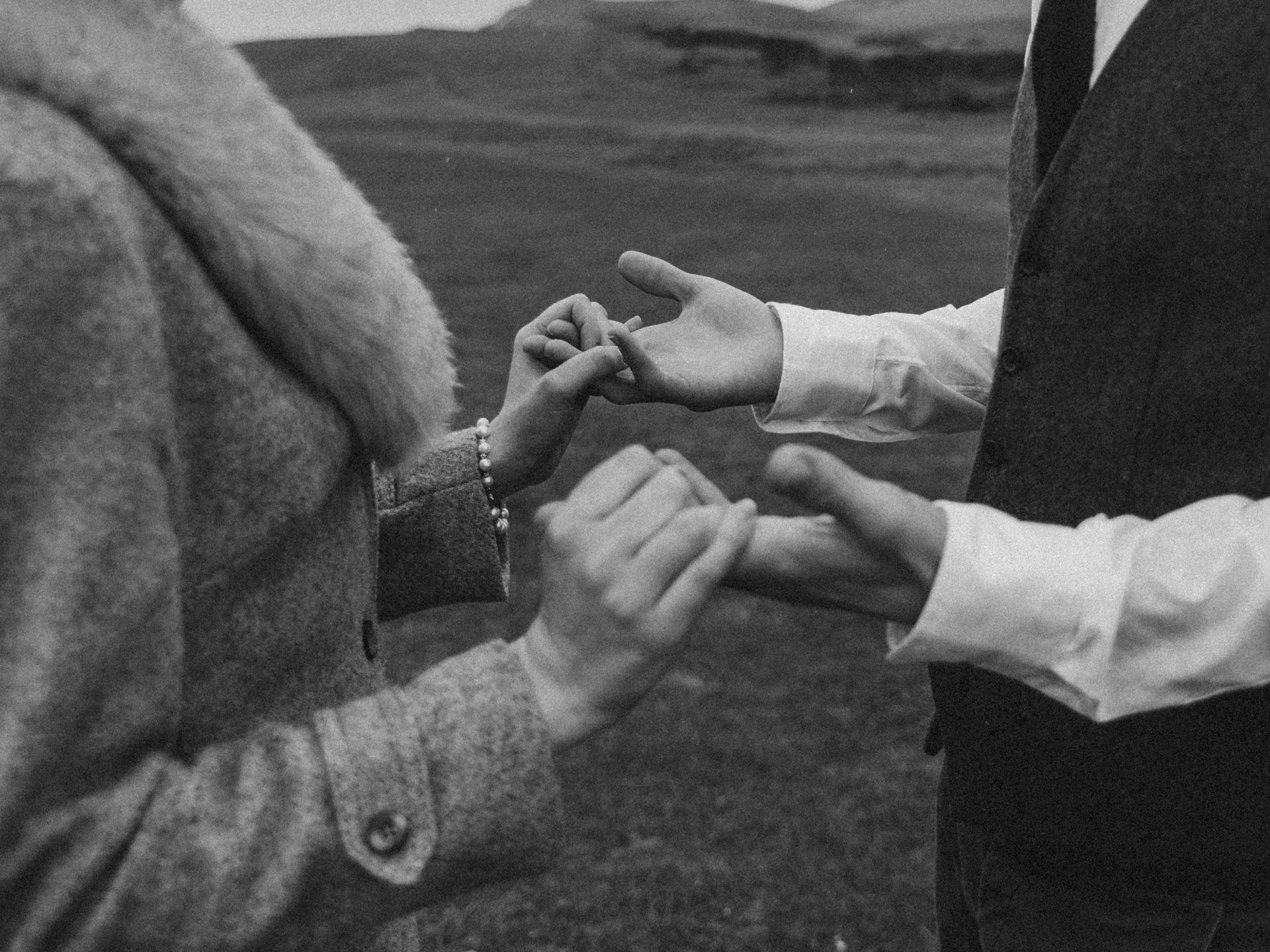Journey through the wall
Robyn Black • March 8, 2021
Emotionally Healthy Spirituality wk 4

Today we are going to look at what it means to “journey through the wall.” Every one of us at some point come up against a wall. It might be divorce, a job loss, the death of someone close, a cancer diagnosis, a disillusioning church experience, a shattered dream, an inability to get pregnant, a deep desire to get married that remains unfulfilled. We question ourselves, we question God, we discover for the first time that faith does not appear to ‘work’. We have more questions than answers, as the very foundation of our faith feels like it’s on the line. And some people become stuck there. Estimates are that 85 percent of Christians get to the wall at some point and never make it through. In a way, that rings true to me. When I think of the number of people who I went to Sunday School with or youth group, and don’t really have any faith today. Or when I was out at pubs on a Friday night, and the number of people whose lives were all over the place, and they’d say with great feeling, that they attended the Salvation Army as children. But something happened along the way.
It may be that some of us this morning are stuck. We’re at the wall, and we’re stuck. I also know that some of you are looking at me saying, “I don’t know what you’re talking about. Life is good!” But I hope you will take this on board because you will hit the wall one day.
We find several places in scripture stories where people are hitting a wall and one of them is Abraham. Abraham hits several walls in his faith journey. In Genesis 12 he had to leave his family, his culture, his security. He had to leave Ur, which is present day Iraq, travel hundreds of miles into the unknown just trusting God. That’s a big thing having to leave behind everything that is known. I imagine along the way, he could have hit the wall, wondering if it was all worth it, wondering would they all die unknown in the desert. Later, Abraham has a huge conflict with his nephew Lot. This could have been another wall.
We also learn that he and his wife Sarah can’t get pregnant. They wait for 11 years, perhaps questioning themselves and God, they answer this problem by having a child with Sarah’s handmaiden Hagar. And Ishmael is born. Sometime after that God promises Abraham that he’s going to have a child with Sarah, and they basically laugh at that.
But they have to wait another 14 years after Ishmael to have a child, Isaac. And then there’s another wall, when Sarah comes to Abraham and says, now I want you to send away Ishmael and Hagar. We may gloss over that but the pain of sending his child Ishmael his own son away, can’t be underestimated. The Bible particularly mentions that this upset Abraham very much.
And then life begins to be all about Isaac. We’ll read from Genesis 22: 1-5 (NLT).
Some time later, God tested Abraham’s faith. “Abraham!” God called.
“Yes,” he replied. “Here I am.”
2 “Take your son, your only son—yes, Isaac, whom you love so much—and go to the land of Moriah. Go and sacrifice him as a burnt offering on one of the mountains, which I will show you.”
3 The next morning Abraham got up early. He saddled his donkey and took two of his servants with him, along with his son, Isaac. Then he chopped wood for a fire for a burnt offering and set out for the place God had told him about. 4 On the third day of their journey, Abraham looked up and saw the place in the distance. 5 “Stay here with the donkey,” Abraham told the servants. “The boy and I will travel a little farther. We will worship there, and then we will come right back.”
Remember, this was the way people worshipped 3000 years ago - they brought grain and animal sacrifices to the altar. But Abraham and Sarah had waited 25 years for the birth of Isaac, and this is definitely a wall. How would Sarah feel about this idea of sacrifice of her only child? Imagine that conversation? “Sarah, I’m taking our son to kill him because, well, God said so!” Perhaps Sarah didn’t know and Abraham held that pain and anguish to himself. Sometimes we hit the wall, and not even the people closest to us, our husband, wife, children, parents, sister, brother…sometimes we don’t even tell them. The wall can be a very lonely place to be.
Here’s what we read happens next. Genesis 22:6-8
6 So Abraham placed the wood for the burnt offering on Isaac’s shoulders, while he himself carried the fire and the knife. As the two of them walked on together, 7 Isaac turned to Abraham and said, “Father?”
“Yes, my son?” Abraham replied.
“We have the fire and the wood,” the boy said, “but where is the sheep for the burnt offering?”
8 “God will provide a sheep for the burnt offering, my son,” Abraham answered. And they both walked on together.
I imagine that Abraham is nervous and confused, yet there remains a trust. Kind of like, I don’t understand this process, I don’t understand my circumstances, but I am making a decision to keep in trusting God, He WILL provide a sheep, and I WILL continue on this journey.
We read this next in the story. Genesis 22:9-14
9 When they arrived at the place where God had told him to go, Abraham built an altar and arranged the wood on it. Then he tied his son, Isaac, and laid him on the altar on top of the wood. 10 And Abraham picked up the knife to kill his son as a sacrifice. 11 At that moment the angel of the Lord called to him from heaven, “Abraham! Abraham!”
“Yes,” Abraham replied. “Here I am!”
12 “Don’t lay a hand on the boy!” the angel said. “Do not hurt him in any way, for now I know that you truly fear God. You have not withheld from me even your son, your only son.”
13 Then Abraham looked up and saw a ram caught by its horns in a thicket. So he took the ram and sacrificed it as a burnt offering in place of his son. 14 Abraham named the place Yahweh-Yireh (which means “the Lord will provide”). To this day, people still use that name as a proverb: “On the mountain of the Lord it will be provided.”
St. John of the Cross called this the “Dark Night of the Soul.” Where you’re saying I don’t want to be here, I don’t what you’re doing God. When you’ve had a tragedy, and you’re plunged into darkness.
We can hit the wall and choose to push God away, but what do we have left - the pain, the sorrow, the darkness, the powerlessness, and you have nothing to hold on to. The image Abraham gives us is of someone who held on even when it was hard, even when it was challenging. And it’s those times, when we don’t pull away from God, when we don’t try and cover the pain with over work or addiction or just shoving it down never to be thought of again, it’s at that wall, that God continues to rewire us, to shape us, to love us.
The Dark Night of the Soul, is not just a trial we encounter each day, like an annoying boss or traffic jams, or an oven that doesn’t work. The Dark Night of the Soul, is Abraham and Sarah waiting 25 years for a son. It’s Abraham being asked by God to sacrifice his son. I have no doubt there some in this room who have been through enormous dark nights that have been unbelievably painful. But the only the way forward is to hold fast to God. Abraham didn’t know what was going on as he climbed that mountain with Isaac, but he keeps going because he trusts God. He waits on God, even though he can’t see the answer. He listens to God. He obeys God. He remains faithful to God, even though everything in him would have wanted to abandon the journey to the altar on the mountain. He goes because he knows God is good and loving. He simply keeps going, one foot after the other. It’s like he says “Thy will be done God”. That is a powerful prayer to hold onto, and sometimes it’s all we have!
If we can hold on to God, he will eventually move us through the wall. And life on the other side looks a bit more like this…
There’s a greater level of brokenness. We’re less judgemental of others, because we know, we really know, we’re not perfect. In fact, we know deep down in our soul, that we are truly no better than anyone else. And no worse than anyone else. Our brokenness brings a humility that helps us to embrace other people without judgement.
There’s greater appreciation for the mystery of God. I’ve often said that in the western world, a lot of the time, we can determine our own outcomes. We want to go to university…well, schooling is free and if you work hard anything is possible. You want to get a job. Well unlike China, where 10,000 people may apply for the one job, usually in Australia, if you continue to apply for work, eventually you’ll get a job. But when you hit the wall, you know you are not in control. Pete Scazzero says ‘most of the time we have no idea what God is doing’. We wonder why, if we’re in relationship with God, why everything is not smooth sailing. But when we hit the wall, we have to accept living with the ‘not knowing’, that is, not knowing why God would allow this, why God has not protected us from it.
On the other side of the wall, there’s a greater ability to wait on God. Abraham learned to wait at his wall. He waited 25 years for Isaac, powerless to make something happen in his own timing.
And on the other side of the wall, there’s greater detachment. We understand more about holding ‘things’ lightly, free from the dominating power of things. WE understand a bit more about what’s really important…and what’s really not!
What’s so amazing about Abraham’s story is that he never knew what his life was going to become. Indeed, he never saw it in his lifetime. God says, “I’m aware of all the details of your life, Abraham, and I’m going to bless you and your descendants. All the nations are going to be blessed through you and your family.” Hebrews 11:8-13a says that Abraham kept going in faith though he faced many walls…because he believed that God is faithful.
Sermons For The Moment

This is an interesting Psalm – another psalm of ascent. We spoke about these Psalms of Ascent a few weeks ago. They were songs the Jewish people sang as they made their way to Jerusalem to go to the temple, through the forest, along the tracks, camping by the roads. And I believe songs like this kept them focussed and kept their spirits up. I can imagine days of walking together, tiring, boring, hot and dusty. And singing some of these Psalms keep them focussed on the faithfulness of God. Much better then eye spy for the kids. Journeys are not all their cracked up to be even if the destination is worth it. As you know, when I was growing up we always holidayed at Bawley Point past Ulladulla, and in those days it was about a 4 hour drive from Sydney. We always left later than we meant to…and the last 20 mins was on a dirt road. One year when I was probably about 4 years old it was dark by the time we got to the dirt road, and half way along the dirt road, was a dodgy wooden bridge over a river. I think part of the bridge had been damaged and we had to wait a bit in the pitch black darkness before we could proceed. Dad was out with a torch ensuring the bridge was safe to drive on and mum and us 4 kids were sitting in the darkness – no street lights, no moonlight. Of course, you might be able to guess what I said to mum in that car, with fearful crying…you’ve probably heard it from kids before. I said ‘I want to go home’. Mum said to me, ‘we can’t go home Robyn, we’re almost there’. In truth, after the bridge we had the last 10 minutes of a 4 hours journey left. We safely crossed the bridge and we were OK. But I remember it. I remember the feeling of being scarred in the darkness. I remember not liking this journey at all. Even though I always loved the destination. Well this psalm celebrates the end of the journey and the arrival at the destination. Psalm 126:1-3, “When the Lord brought back his exiles to Jerusalem, it was like a dream! We were filled with laughter, and we sang for joy. And the other nations said, “What amazing things the Lord has done for them.” Yes, the Lord has done amazing things for us! What joy!” Before we can understand the laughter and joy of the Israelites, we have to understand their journey. This Psalm looks back to when they arrived back in Jerusalem after 70 long years in Babylon. The captives had experienced great sorrow and mourning in exile. We read these heartbreaking words in Psalm 137: “Beside the rivers of Babylon, we sat and wept as we thought of Jerusalem. We put away our harps, hanging them on the branches of poplar trees. For our captors demanded a song from us. Our tormentors insisted on a joyful hymn: “Sing us one of those songs of Jerusalem!” But how can we sing the songs of the Lord while in a pagan land?” (Psalm 137:1-4). Their tormentors demanded they sing joyfully, but they were like – that’s impossible, it doesn’t come from our heart. So they just sat by the waters of Babylon and wept. But now by an amazing work of God they were suddenly back in Jerusalem. And so their joy came from their heart. The wait was over, the journey was complete. “We were filled with laughter, and we sang for joy.” The journey is the hard bit though isn’t it? I was reminded of this, this week. An Officer couple I was speaking to, said that their teenager said some very hurtful things to them. Stuff like, ‘you make my life worse’. As they spoke to me, I did very little but listen and pray with them. They do have other supports in their life as well, already seeing a psychologist. But what I was thinking in my head as they were speaking was ‘oh the teenage years, I’d forgotten them’. Though we have 2 wonderful young adults in P and K, they were times when it was more than tense. K wears her heart on her sleeve, and to this day apologises for some of the things she said to me. And P, you wouldn’t know what he was thinking, and then all of a sudden all his thoughts and feelings for the last 3 years would come out like molten lava everywhere. A few days later I checked in to see how the couple and their teenager were going. I mentioned in passing about teenage years and very briefly about our experiences. I didn’t want to make it all about me. But I said teenage years can be painful and those years can really hurt everyone in the family. Teenager included. They know that we have a good relationship with P and K and they said to me, you know, this is helpful. It gives us hope. I was like, yep, this too shall pass. Because when you’re in the midst of the journey of pain and sorrow, you sometimes wonder if there’s light at the end of the tunnel. If you’ll laugh again or experience joy again. You begin to wonder, “Is this all that God has for me? Will I ever be happy again?” And here’s the promise in Psalm 126:4-6, “Restore our fortunes, Lord, as streams renew the desert. Those who plant in tears will harvest with shouts of joy. They weep as they go to plant their seed, but they sing as they return with the harvest.” When you are going through a time of deep sorrow, Psalm 126 is strong medicine for your soul. It carries a powerful message of hope. It tells you that times of trouble and sorrow do not last. It tells you that God will turn your sorrow to joy and your tears to laughter. If you are going through a challenging time right now, I pray that this psalm will speak to your heart this morning. Let me tell you right up front, whatever you’re going through, it will get better. God will change your tears to joy. This week I found something I wrote about 10 years ago. I had written it on a piece of paper and there was a whole reflection about my life. At the time we had my mum living with us, she had dementia, and mostly I remember the good times and the fun times with her. I was also the Corps Officer at Glebe and Bob was the manager at William Booth House. After a page of writing I had written something like this “I’m often anxious, I’m usually stressed, I have eczema on my eyelids and ulcers in my mouth. I always feel pressed.” I went out to Bob in the lounge room and I’m like, ‘oh my goodness, eczema on my eyelids and ulcers in my mouth’, often anxious, usually stressed. The thing is, my life feels a long way from that now, and I’d forgotten what that part of my journey felt like. I’m sure when I was there I couldn’t look ahead and see a time of joy…but the truth is that “Those who plant in tears will harvest with shouts of joy. They weep as they go to plant their seed, but they sing as they return with the harvest.” This too shall pass. ‘Yes, the Lord has done amazing things for us!’ says verse 3. God is faithful – he does the healing, the restoring, he brings the streams in the desert that renews and brings fruitfulness. I don’t need to tell you – it takes time. Today, I’m praying for a work of healing in your life, a gradual restoration of joy, of laughter. Like me as a kid, sometimes we don’t like parts of this journey at all. Even though we know our destination is good. And ultimately, we have a destination like no other and that’s the promise of God. A home in heaven made possible through Jesus. May God bless you this week as you look to Him, listen to Him, find your hope in Him and find courage and healing in your journey.







